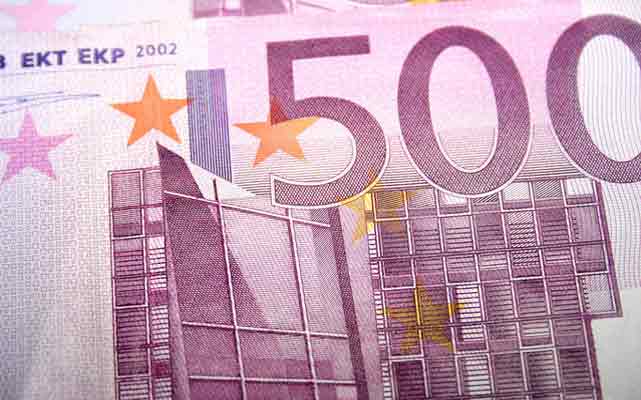Pound to Euro FX Forecast: GBP/EUR Stabilises, But Downside Risks to Continue
- Written by
Tim Boyer

The Pound to Euro exchange rate (GBP/EUR) held near 1.1350 on Tuesday, stabilising slightly after last week’s 30-month lows, as traders braced for crucial UK inflation data that could determine whether Sterling can avoid fresh losses.
The Pound to Euro rate has consolidated around 1.1350 and above 30-month lows around 1.1280 traded last week.
Traders will continue to monitor the UK bond market closely in the short term. Relative stability prevailed on Tuesday with the 10-year yield edging lower to near 4.50% which limited the potential for further Pound selling, but equities were under pressure which limited Sterling support.
SocGen chief FX strategist Kit Juckes commented "Whether sterling can continue to fall against the euro at its recent pace is a moot point, but over time it looks distinctly vulnerable."
Danske Bank has a 6-month GBP/EUR forecast of 1.11.
The Pound was hampered by a fresh retreat in global equities with the FTSE 100 index posting 3-month lows. Wall Street trends will be watched closely in the near term.
MUFG commented; “The Nasdaq composite equity index closed below the 55-day moving average for the first time since May, adding to investor unease over risk assets in the near-term.”
Domestically, the immediate focus will be on Wednesday’s inflation data.
Consensus forecasts are for the headline rate to decline to 3.6% from 3.8% with the core rate edging lower to 3.4% from 3.5%.
The data will have an impact on Bank of England expectations with markets currently pricing in around a 65% chance of a cut at the December meeting.
SocGen’s Juckes noted; "If we get a softish print in CPI, it looks like that will open the door to a December rate cut. The market thinks that's the more likely outcome, it probably thinks its a shoe in if we get that outcome."
Stronger than expected data, however, could trigger a re-think.
Markets will also continue to monitor fiscal policy with the budget due next week.
ING expects politics will be a bigger driver than the budget announcement and commented; “Were a leadership challenge to become a more imminent possibility, which at the moment, it's not, then markets may quickly assume that a new PM would mean a new chancellor. And a new chancellor, perhaps more left-leaning than the incumbent Rachel Reeves, would be seen as more likely to change the fiscal rules and increase borrowing.”
Danske Bank considers that the overall UK fundamentals will undermine the Pound while the Euro will benefit from the German fiscal boost.
According to the Bank; “We see domestic factors and the relative growth outlook between the UK and the euro area as GBP negatives. This is further amplified by divergence in the fiscal policy outlook with UK fiscal policy set to be tightened in the Autumn.”
STORY LINK Pound to Euro FX Forecast: GBP/EUR Stabilises, But Downside Risks to Continue

The Pound to Euro exchange rate (GBP/EUR) held near 1.1350 on Tuesday, stabilising slightly after last week’s 30-month lows, as traders braced for crucial UK inflation data that could determine whether Sterling can avoid fresh losses.
GBP/EUR Forecasts: Hold Above 30-Month Lows?
The Pound to Euro rate has consolidated around 1.1350 and above 30-month lows around 1.1280 traded last week.
Traders will continue to monitor the UK bond market closely in the short term. Relative stability prevailed on Tuesday with the 10-year yield edging lower to near 4.50% which limited the potential for further Pound selling, but equities were under pressure which limited Sterling support.
SocGen chief FX strategist Kit Juckes commented "Whether sterling can continue to fall against the euro at its recent pace is a moot point, but over time it looks distinctly vulnerable."
Danske Bank has a 6-month GBP/EUR forecast of 1.11.
The Pound was hampered by a fresh retreat in global equities with the FTSE 100 index posting 3-month lows. Wall Street trends will be watched closely in the near term.
Save on Your GBP/EUR Transfer
Get better rates and lower fees on your next international money transfer. Compare TorFX with top UK banks in seconds and see how much you could save.
Domestically, the immediate focus will be on Wednesday’s inflation data.
Consensus forecasts are for the headline rate to decline to 3.6% from 3.8% with the core rate edging lower to 3.4% from 3.5%.
The data will have an impact on Bank of England expectations with markets currently pricing in around a 65% chance of a cut at the December meeting.
SocGen’s Juckes noted; "If we get a softish print in CPI, it looks like that will open the door to a December rate cut. The market thinks that's the more likely outcome, it probably thinks its a shoe in if we get that outcome."
Stronger than expected data, however, could trigger a re-think.
Markets will also continue to monitor fiscal policy with the budget due next week.
ING expects politics will be a bigger driver than the budget announcement and commented; “Were a leadership challenge to become a more imminent possibility, which at the moment, it's not, then markets may quickly assume that a new PM would mean a new chancellor. And a new chancellor, perhaps more left-leaning than the incumbent Rachel Reeves, would be seen as more likely to change the fiscal rules and increase borrowing.”
Danske Bank considers that the overall UK fundamentals will undermine the Pound while the Euro will benefit from the German fiscal boost.
According to the Bank; “We see domestic factors and the relative growth outlook between the UK and the euro area as GBP negatives. This is further amplified by divergence in the fiscal policy outlook with UK fiscal policy set to be tightened in the Autumn.”
International Money Transfer? Ask our resident FX expert a money transfer question or try John's new, free, no-obligation personal service! ,where he helps every step of the way, ensuring you get the best exchange rates on your currency requirements.
TAGS: Pound Euro Forecasts
Comments are currrently disabled
Related Stories:
- British Pound-to-Euro Forecast: GBP Steady on Iran, Energy Prices - January 14, 2026
- Pound to Euro Holds Near €1.15 - January 13, 2026
- British Pound to Euro Forecast: GBP Holds Ground Against EUR Amid Global Uncertainty - January 13, 2026
- Pound to Euro Holds Near €1.15 as Dollar Slumps - January 12, 2026
- Pound-to-Euro Week Ahead Forecast: UK Growth Critical for GBP/EUR in 2026 - January 12, 2026
- Pound-to-Euro Forecast: GBP Treads Water as UK Growth Outlook in Focus - January 9, 2026
- Pound-to-Euro Drifts toward €1.15 - January 9, 2026
- British Pound to Euro Forecast: GBP Drifts Lower After Strong New-Year Rally - January 8, 2026
- Pound Euro Steady Despite Cooling Inflation - January 8, 2026
Latest News:
- British Pound-to-Euro Forecast: GBP Steady on Iran, Energy Prices - January 14, 2026
- Pound Sterling to Dollar Forecast: GBP Stalls Below 1.35 as USD Holds Firm - January 14, 2026
- GBP/USD Forecast: Pound Sterling Firm as CPI Leaves Fed Bets Intact - January 13, 2026
- Pound to Euro Holds Near €1.15 - January 13, 2026
- British Pound to Euro Forecast: GBP Holds Ground Against EUR Amid Global Uncertainty - January 13, 2026
- Pound-to-Dollar Forecast: Powell Legal Row Undermines USD Support - January 13, 2026
- Pound to Euro Holds Near €1.15 as Dollar Slumps - January 12, 2026
- Pound Sterling to Dollar Forecast: GBP Rebounds above $1.34 on USD Shock - January 12, 2026
- Pound to Dollar Week Ahead Forecast: GBP/USD Vulnerable - January 12, 2026
- Euro-to-Dollar Forecast: EUR/USD Pressured as Markets Reassess Fed Cuts - January 12, 2026









